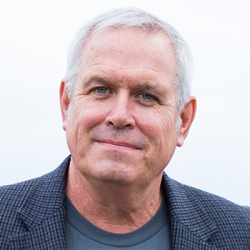
Our world has changed – permanently.
And we can’t know exactly how, but I believe it will make educators realize (or be reminded) that many things weren’t working in the old system. This is a “teachable moment,” and perhaps a tipping point for change.
What lessons can we learn? I believe a clear one is this: Project Based Learning, now more than ever, is what will help us meet the moment.
PBL is truly a means of keeping kids engaged in learning and growing now, and a key to fostering the creativity, initiative, and resilience they’ll need to thrive in our rapidly changing world.
Why is PBL right for the new landscape in education?
With many schools now conducting remote learning, we now have an opportunity to imagine new approaches to instruction that are more powerful, engaging, and meaningful than lectures, worksheets, and textbook assignments.
As an organization, we’ve been thinking deeply about how we can support this shift, and we look forward to sharing some new ideas and resources in the coming months. For now, let me offer 4 ideas about why PBL is especially relevant in these times.
PBL really adapts well to the distance learning environment.
We’ve already seen that students in PBL schools are much more self-directed, able to learn independently, and self-manage a project. They’ve developed a sense of curiosity and the disposition for inquiry, which allows them to get engaged in learning whether their teacher is in the room or not.
We need to shift from compliance to engagement.
Our education system is based on a misunderstanding of student engagement. Traditional tools like standardized tests, grades, and seat time are actually about compliance, not engagement. So the question for schools is, how do you engage kids in their own learning? It’s not by having them complete online worksheets and take quizzes about something they read on a computer. It’s by having them tackle real-world problems and address issues that are personally meaningful--as they do in high-quality PBL. A PBL teacher I know says, “engage their hearts and their minds will follow.”
We need more flexible time for learning.
Teachers who have spent years learning how to manage a classroom are going to have to adjust that practice. I’m hoping they will begin to embrace flexibility, and can start to think of managing learning in bigger chunks of time than a typical “lesson.” In PBL, students work for sustained periods of time, in small groups or on their own, doing research, synthesizing it, testing things out, creating products, preparing presentations, connecting with outside experts.
We need to prioritize authenticity and motivation to learn.
We’ve always known that in a high-quality project that engages students, academic and content knowledge will follow. Now more than ever, we have to make learning relevant for young people. It’s a pretty bleak time for them, so give them experiences and moments when they find some joy in the midst of this challenge. We have to keep kids in the game. We have to make instruction relevant and culturally responsive, and engage students in trying to address the challenges of our world and our communities. They’re readily aware of the challenges. PBL gives them agency and the tools to address them.
What do you think? We'd love to hear from educators in the field. You can connect and share your thoughts with Bob on Twitter at @PBLBob or with our organization at @PBLWorks.

